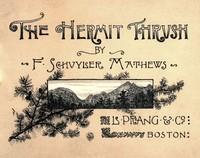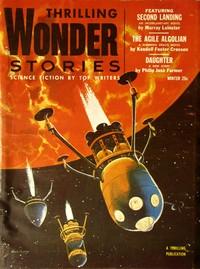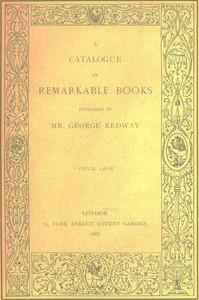|
|
Read this ebook for free! No credit card needed, absolutely nothing to pay.Words: 44021 in 8 pages
This is an ebook sharing website. You can read the uploaded ebooks for free here. No credit cards needed, nothing to pay. If you want to own a digital copy of the ebook, or want to read offline with your favorite ebook-reader, then you can choose to buy and download the ebook.

: A world of green hills by Torrey Bradford - Natural history Outdoor books; Bird watching; Blue Ridge Mountains Description and travel@FreeBooksThu 08 Jun, 2023 tall old trees and the ancient rhododendron bushes, which have been drowned by the brook they meant only to drink from, are too recently dead. Nature must have time to trim the ragged edges of man's work and fit it into her own plan. And she will do it, though it may take her longer than to absorb the man himself. Although my first brief visit to Stewart's Pond made three additions to my local bird list , I did not go that way again for almost a fortnight. Then my feet were barely on the bridge before a barn swallow skimmed past me. Swallows of any kind in the mountains of North Carolina are like hen-hawks in Massachusetts,--rare enough to be worth following out of sight. As for barn swallows, I had not expected to see them here at all. I kept my eye upon this fellow, therefore, with the more jealousy, and happily for me he seemed to have found the spot very much to his mind. If he was a straggler, as I judged likely in spite of the lateness of the season, he was perhaps all the readier to stay for an hour or two on so favorable a hunting-ground. With him were half a dozen rough-wings,--probably not stragglers,--hawking over the water; feeding, bathing, and now and then, by way of variety, engaging in some pretty spirited lovers' quarrels. In one such encounter, I remember, one of the contestants received so heavy a blow that she quite lost her balance and dropped plump into the water; and more than once the fun was interrupted by an irate phoebe, who dashed out upon the makers of it with an ugly snap of his beak, as much as to say, "Come, now, this is my bridge." Mr. Stewart himself could hardly have held stricter notions about the rights of property. The rough-wings frequently perched in the dead trees, and once, at least, the barn swallow did likewise; something which I never saw a bird of his kind do before, to the best of my recollection. For to-day he was in Rome, and had fallen in with the Roman customs. As I have said already, his presence was unexpected. His name is not included in Mr. Brewster's North Carolina list, and I saw no other bird like him till I was approaching Asheville, a week later, in a railway train. Then I was struck almost at the same moment by two things--a brick chimney and a barn swallow. My start at the sight of red bricks made me freshly aware with what quickness the mind puts away the past and accustoms itself to new and strange surroundings. Man is the slave of habit, we say; but how many of us, even in middle age, have altered our modes of living, our controlling opinions, or our daily occupations, and in the shortest while have forgotten the old order of things, till it has become all like a dream,--a story heard long ago and now dimly remembered. Was it indeed we who lived there, and believed thus, and spent our days so? This capacity for change augurs well for the future of the race, and not less for the future of the individual, whether in this world or in another. On my way through the village, at noon, I passed the steer turned out to grass by the roadside, and had a better look at the harness, a simple, home-made affair, including a pair of hames. The driving-rope, which in its original estate might have been part of a clothes-line or a bed-cord, was attached to a chain which went round or over the creature's head at the base of the horns. The lads themselves were farther down the street, and the younger one nudged the other's elbow with a nod in my direction as I passed on the opposite sidewalk. They seemed to have sobered down at a wonderful rate since their arrival in the "city." I should hardly have known them for the same boys; but no doubt they would wake the echoes again on the road homeward. I hoped so, surely, for I liked them best as I saw them first. This boy was not a "cracker's" child, I think. Probably he belonged to one of the Northern families, that make up the village for the most part, and have settled the country sparsely for a few miles round about. The lot of the native mountaineers is hard and pinched, and although flocks of children were playing happily enough about the cabin doors, it was impossible not to look upon them as born to a narrow and cheerless existence. Possibly the fault was partly in myself, since I have no very easy gift with strangers, but I found them, young and old alike, rather uncommunicative. However, it is the mountain woman's way to do her full share of the hard work, as I was soon to see farther exemplified; for within half a mile I heard in front of me the grating of a saw, and presently came upon another family group, in the woods on the mountain side,--a woman, three children, and a dog. The woman, no longer young, as we say in the language of compliment, was at one end of a cross-cut saw, and the largest boy, ten or eleven years old, was at the other. They were getting to pieces a huge fallen trunk. "Wood ought to be cheap in this country," said I; and the woman, as she and the boy changed hands to rest themselves, answered that it was. In my heart I thought she was paying dearly for it; but her voice was cheerful, and the whole company was almost a merry one, the younger children laughing at their play, and the dog capering about them in high spirits. The mountain family may be poor, but not with the degrading, squalid poverty of dwellers in a city slum; and at the very worst the children have a royal playground. As to the question of snakes and the danger from them, the people here, as is true everywhere in a rattlesnake country, held widely different opinions. Everybody recognized the presence of the pest, and most persons, whatever their own practice might be, advised a measure of caution on the part of strangers. One thing was agreed to on all hands: whoever saw a "rattler" was in duty bound to make an end of it; and one man told me a little story by way of illustrating the spirit of the community upon this point. A woman was riding into town, when her horse suddenly stopped and shied. In the road, directly before her, a snake was coiled, rattling defiance. The woman dismounted, hitched the frightened horse to a sapling, cut a switch, killed the snake, threw it out of the road, remounted, and went on about her business. It is one advantage of life in wild surroundings that it encourages self-reliance. In all places, nevertheless, and under all conditions, human nature remains a paradoxical compound. A mountain woman, while ploughing, came into close quarters with a rattlesnake. To save herself she sprang backward, fell against a stone, and in the fall broke her wrist. No doctor being within call, she set the bone herself, made and adjusted a rude splint, and now, as the lady who told me the story expressed it, "has a pretty good arm." That was plucky. But the same woman suffered from an aching tooth some time afterward, and was advised to have it extracted. She would do no such thing. She couldn't. She had a tooth pulled once, and it hurt her so that she would never do it again. A small magnolia-tree , in bloom everywhere along the brooksides, did not attract me to any special degree till one day, in an idle hour at Stewart's Pond, I plucked a half-open bud. I thought I had never known so rare a fragrance; delicate and wholesome beyond comparison, and yet most deliciously rich and fruity, a perfume for the gods. The leaf, too, now that I came really to look at it, was of an elegant shape and texture, untoothed, but with a beautiful "auriculated" base, as Latin-loving botanists say, from which the plant derives its vernacular name,--the ear-leaved umbrella-tree. The waxy blossoms seemed to be quite scentless, but I wished that Thoreau, whose nose was as good as his eyes and his ears, could have smelled of the buds. The best thing that I found at the pond, however, by long odds the most interesting and unexpected thing that I found anywhere in North Carolina , was neither a tree nor a human being, but a bird. I had been loitering along the river-bank just above the pond itself, admiring the magnolias, the silver-bell trees, the lofty hemlocks,--out of the depths of which a "mountain boomer," known to simple Northern folk as a red squirrel, now and then emitted his saucy chatter,--and the Indian's paint-brush , the brightest and among the most characteristic and memorable of the woodland flowers; listening to the shouts of an olive-sided flycatcher and the music of the frogs, one of them a regular Karl Formes for profundity; and in general waiting to see what would happen. Nothing of special importance seemed likely to reward my diligent idleness, and I turned back toward the town. On the way I halted at the bridge, as I always did, and presently a carriage drove over it. Inside sat a woman under an enormous black sunbonnet. She did me, without knowing it, a kindness, and I should be glad to thank her. As the wheels of the carriage struck the plank bridge, a bird started into sight from under it or close beside it. A sandpiper, I thought; but the next moment it dropped into the water and began swimming. Then I knew it for a bird I had never seen before, and, better still, a bird belonging to a family of which I had never seen any representative, a bird which had never for an instant entered into my North Carolina calculations. It was a phalarope, a wanderer from afar, blown out of its course, perhaps, and lying by for a day in this little mountain pond, almost four thousand feet above sea level. I was in love with the bird from the first minute. Its tameness, the elegance of its shape and plumage, the grace and vivacity of its movements, these of themselves were enough to drive a bird-lover wild. Add to them its novelty and unexpectedness, and the reader may judge for himself of my state of mind. It was the dearest and tamest creature I had ever seen, I kept saying to myself, forgetful for the moment of two blue-headed vireos which at different times had allowed me to stroke and feed them as they sat brooding on their eggs. Another thing I must mention, as adding not a little to the pleasure of the hour. The moment I set eyes upon the phalarope, before I had taken even a mental note of its plumage, I thought of my friend and correspondent, Celia Thaxter, and of her eager inquiries about the "bay bird," which she had then seen for the first time at the Isles of Shoals--"just like a sandpiper, only smaller, and swimming on the water like a duck." And as the bird before me darted hither and thither, so amazingly agile, I remembered her pretty description of this very trait, a description which I here copy from her letter:-- Free books android app tbrJar TBR JAR Read Free books online gutenberg More posts by @FreeBooks
: The hermit thrush by Mathews F Schuyler Ferdinand Schuyler - American poetry 19th century; New Hampshire Poetry; Hermit thrush Poetry@FreeBooksThu 08 Jun, 2023

: If at first by Venable Bill Poulton Peter Illustrator - Science fiction; Short stories@FreeBooksThu 08 Jun, 2023
|
Terms of Use Stock Market News! © gutenberg.org.in2025 All Rights reserved.






